Kate Finds Her Place
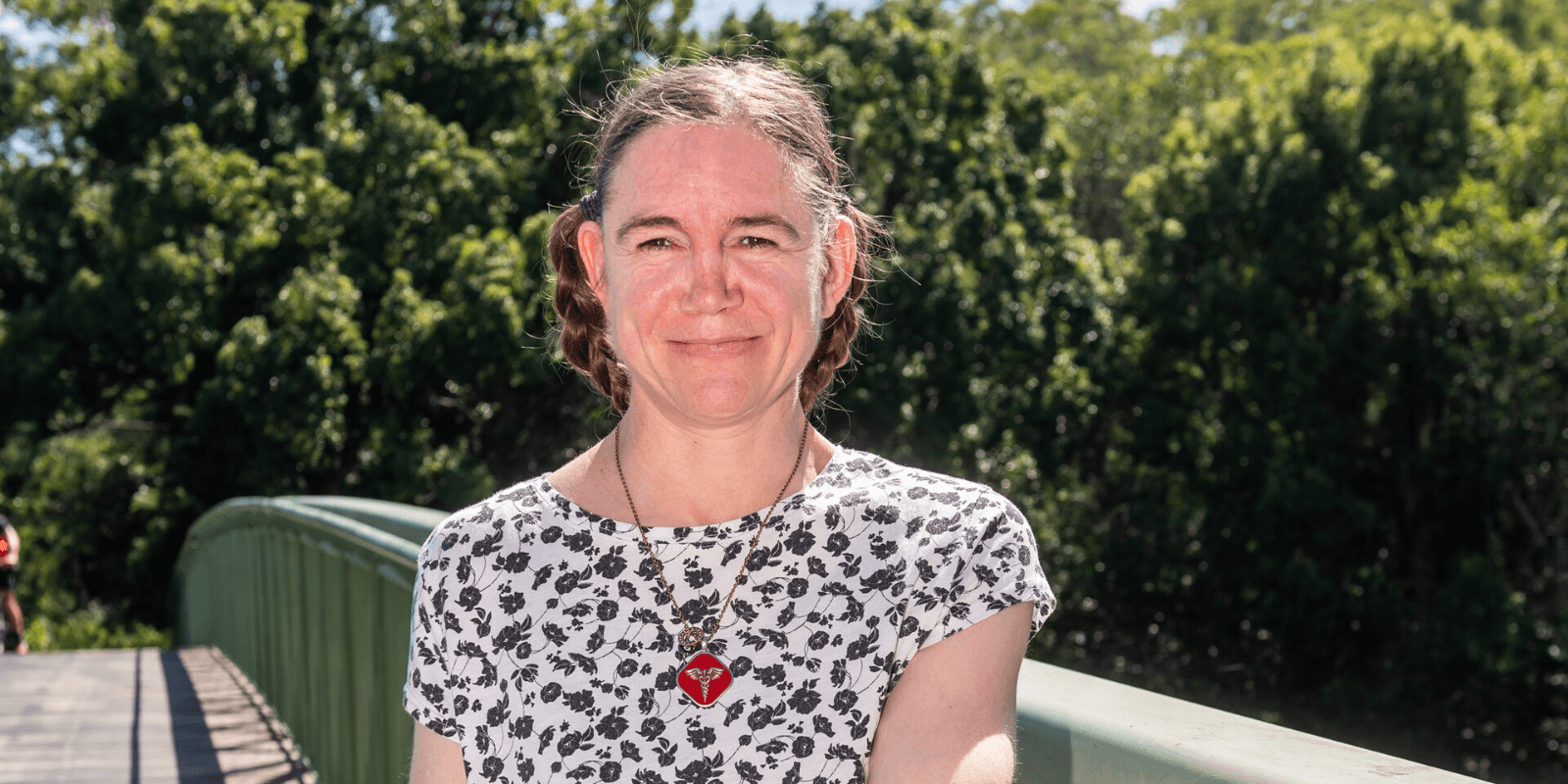
Meet Kate, who works with Deaf Services to live independently and follow her dreams!
KATE’S STORY
- Kate has worked with Deaf Services’ Lifestyle Support Services (LSS) since 2015
- Kate is deafblind and epileptic and lives with severe food and additive allergies
- In 2018, Kate began a transition to independent living at the Deaf Services supported independent living facility
- In 2019, Kate became one of E-House’s three residents
- Kate loves having her own space, her garden and her friends at E-House
- Kate enjoys a wide range of interests in the community and wants to do even more
- LSS works with Kate to achieve her personal goals outlined in her National Disability Insurance Scheme (NDIS) plan.
- One of Kate’s future goals is to go sky-diving!
Lifestyle Support Services (LSS) is a Deaf Services program delivering one-on-one support in Auslan to a range of Deaf, deafblind and hard of hearing Australians to achieve their full potential and to live the life they choose.
Kate has been a participant of LSS since 2015. Kate is deafblind, and epileptic, with numerous food and additive allergies. She lost her hearing at two years old and sight at 12 due to allergic reactions. While gradually regain some of her vision, she remains legally blind. Kate uses a mixture of close-proximity Auslan and tactile signing (touching hands) to communicate.
Kate has received support from LSS since 2015, and in 2018, she took a big step towards greater independence, beginning the process of transitioning from living with her family to living at the Deaf Services supported independent living facility.
In June 2019, Kate officially became one of the house’s three residents, spending Monday to Friday living independently before returning home on weekends.
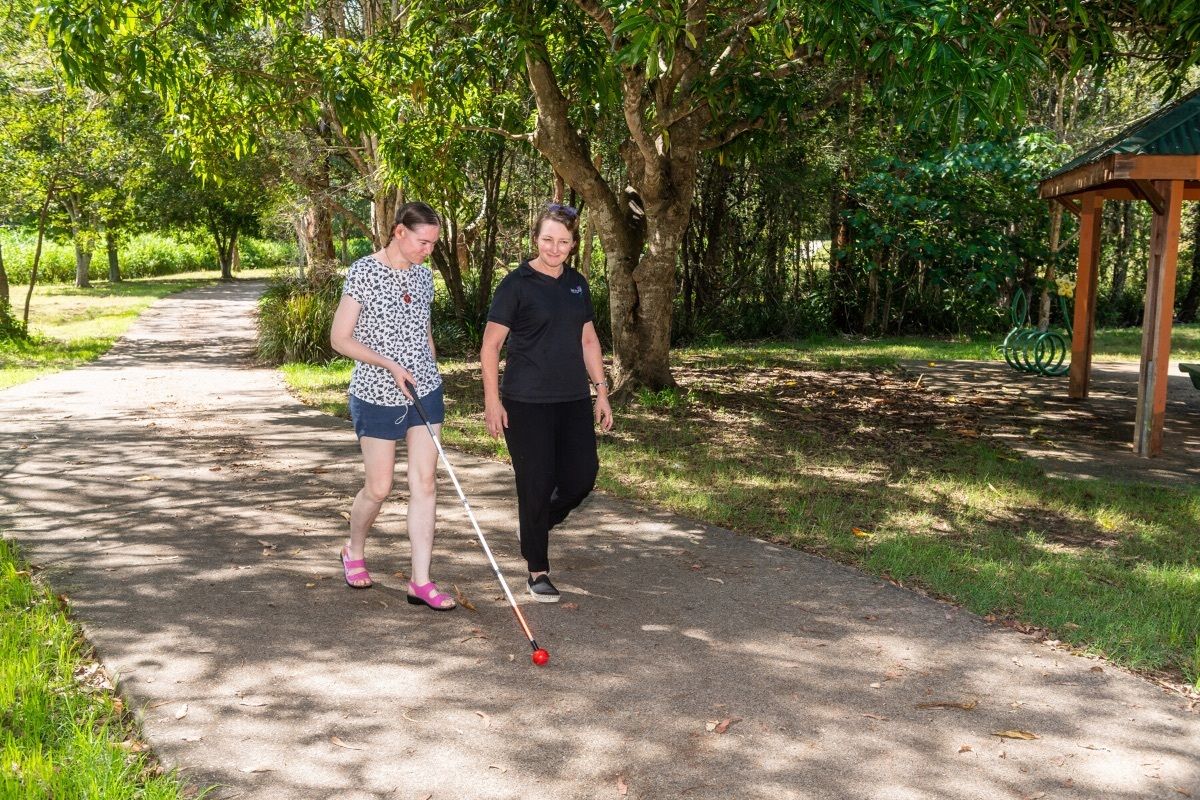
LSS staff work with Kate every day to support her to achieve her individual goals, such as making and maintaining friendships, attending community and social activities, living independently and exploring volunteer opportunities.
“I have been at E-House for about eight months,” Kate tells us. “I like living here. I love having my own room and my garden. I love cooking.”
Out in the community, Kate has a wide range of interests, and is always keen to try new things.
“I like going out shopping, yoga, playing golf, doing craft, going bowling, seeing movies and swimming,” she says. “I’m very busy!”
Kate enjoys catching up with friends, and spending time with her LSS support workers.
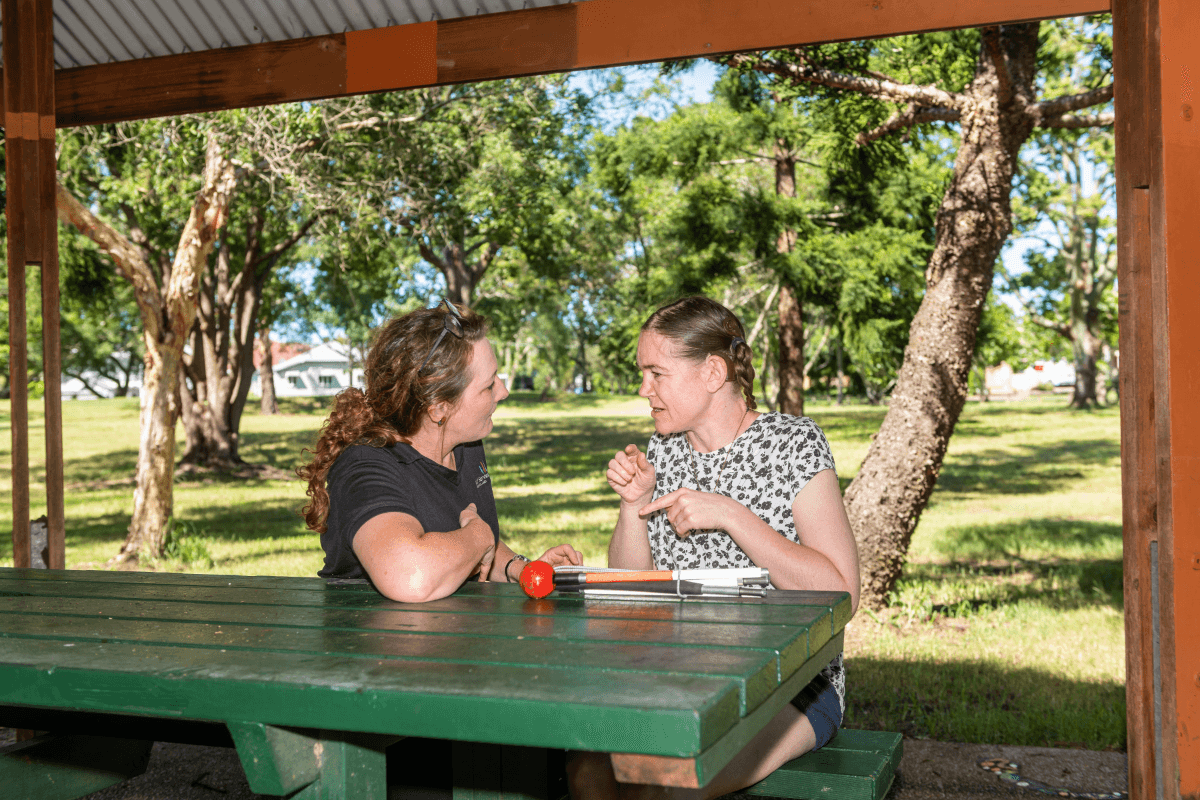
One thing that is clear from meeting Kate is that she is always assertive and enthusiastic about new experiences. She keeps her own calendar of appointments, and loves to keep busy.
“I love horses and would like to learn horse riding,” Kate says. “I also want to learn dancing.”
Kate works with a number of LSS staff members, but on the day we visit her, she is with her key support worker, Gillian, who has worked with Kate for the past two years.
For Gillian, who is Deaf, working with people like Kate is fulfilling on many levels.
“It’s so rewarding to be helping connect Deaf people to their community, and to show them they can do anything they want,” she says.
“These are individuals, with individual personalities, who have things they want to achieve things in their lives. I’m privileged to be a small part of that.”
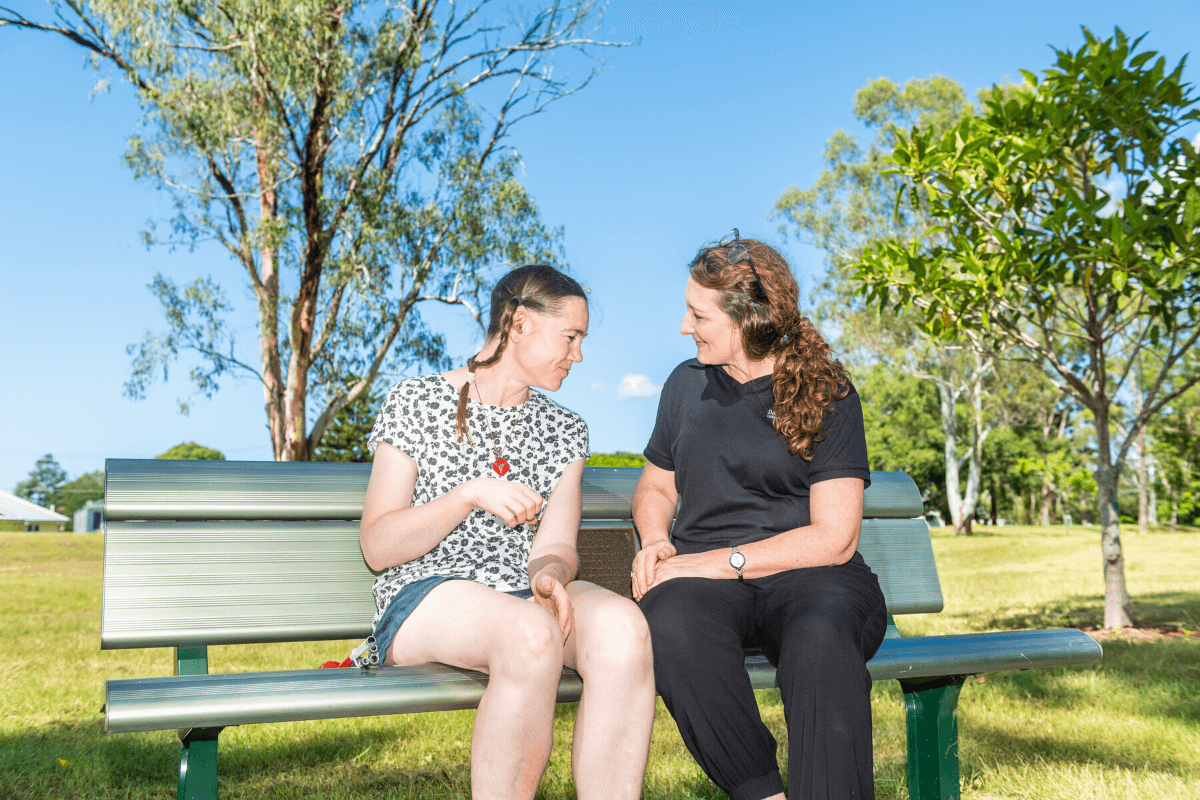
For Kate’s mum Gail, LSS has been a hugely positive part of her daughter’s life.
Kate’s family have been in contact with Deaf Services since the late 1990s, and Gail explains that there is one thing that sets LSS apart from many other NDIS providers: the ability to communicate in Auslan.
“For Kate to continue to progress,” Gail says, “her support people must have fluent sign ability. If Kate doesn’t have that support, she would be denied her language, with no means or capability to learn another.”
With correct food identification of critical importance in Kate’s life, Gail points out that a support worker without Auslan knowledge could mean that even a slight language ambiguity could lead to serious mental and physical complications.
It is the range of activities that Kate is engaged in, however, that has made Gail the happiest.
“Kate has gained access to and experience with many activities that she would not have without the support from LSS. Also she is learning about her own wants without Mum getting in the way!”
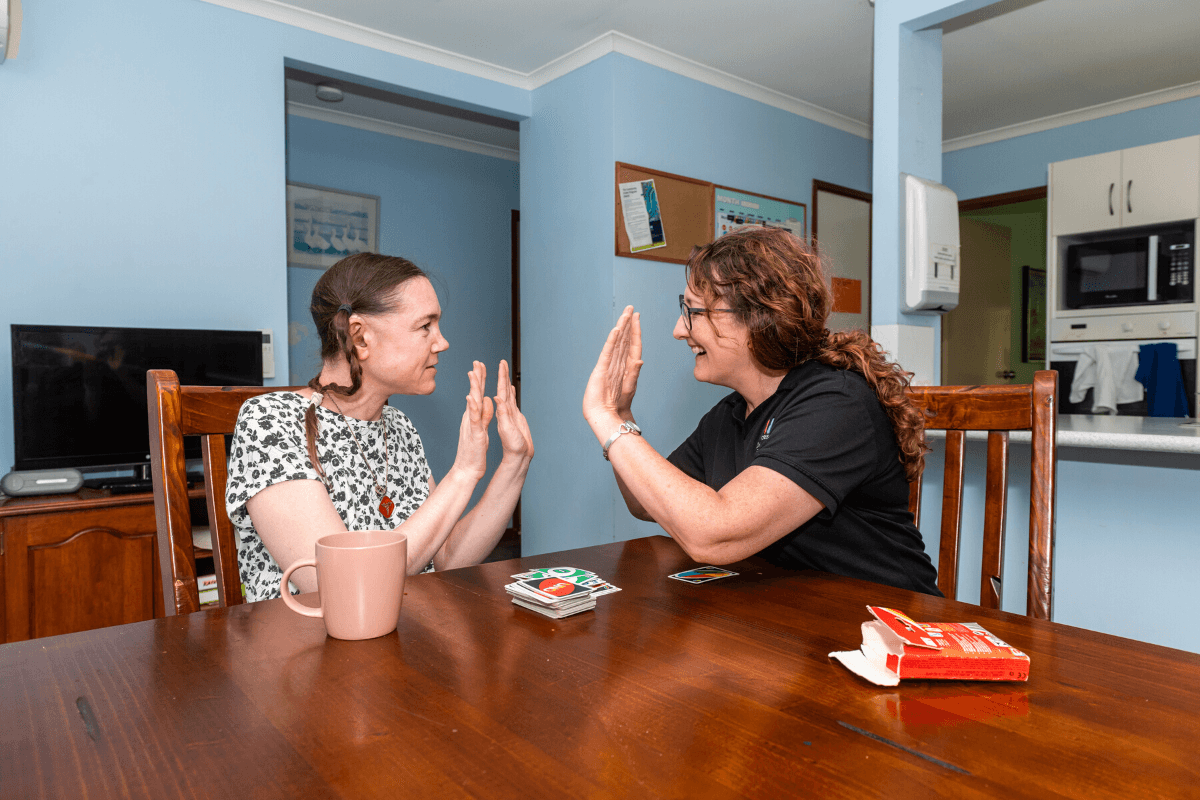
For the future, Kate is working towards living at the Deaf Services supported independent living facility 12 days per fortnight, becoming more independent through the use of assistive technology and booking and managing her own medical appointments.
One of Kate’s big personal goals is to go sky-diving, something that Gillian is approaching with a mixture of excitement and apprehension.
“Once Kate’s health is at a good point, we’ll start talking about how to make this happen,” Gillian says. “I’m just hoping it’s not me she want to go with her!”

We would love to hear from you
We would love to know what you think about The Deaf Lottery!
1800 77 36 78
All times displayed in your local timezone unless stated otherwise. Deaf Lottery is in aid of the charitable services of Deaf Services Limited T/A Deaf Connect (ABN 62 118 664 298) and is located at Level 5, 88 Tribune Street, South Brisbane QLD 4101, Australia.



